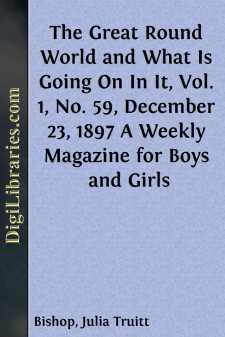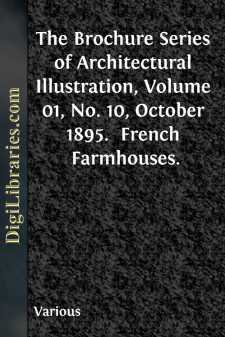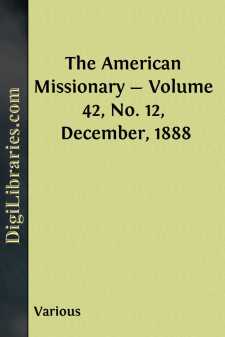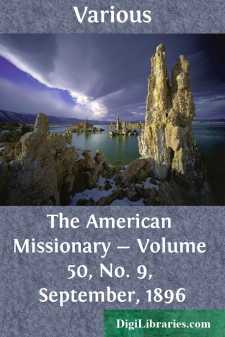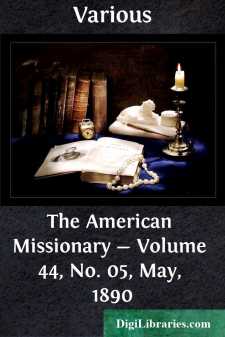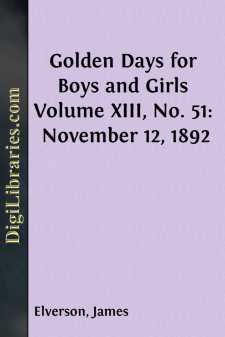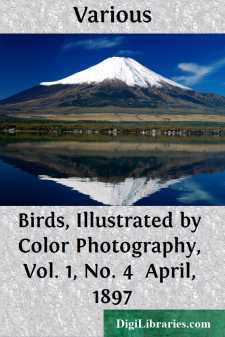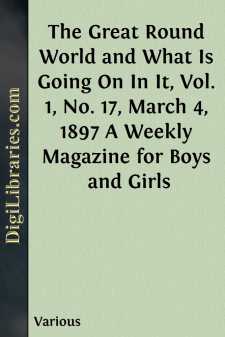Periodicals
- Art 27
- Children's periodicals 59
- Entertainment 5
- Food/Wine 2
- Games/Humor 455
- General 661
- Health 1
- History 53
- House/Home 1
- Regional 62
- Science/Nature 118
- Transportation 10
Periodicals Books
Sort by:
The troubles in Austria have not been brought to a close by the downfall of Count Badeni and the appointment of Baron von Gautsch. Count Badeni was, as you will remember, particularly obnoxious to the German element in Austria, and many people thought that his dismissal would restore harmony. Instead, it has given rise to some very serious rioting in Bohemia. We explained to you in a former number that...
more...
by:
Various
FRENCH FARMHOUSES. As it is the purpose of THE BROCHURE SERIES to cover as wide a field as possible in choice of subject matter for its illustrations, and at the same time hold rigidly to the idea of furnishing only what will be useful to its subscribers, it has seemed desirable to present something a little nearer our everyday life than the Italian work which has thus far formed the greater part of...
more...
by:
Various
COMMUNICATIONS Relating to the work of the Association may be addressed to the Corresponding Secretaries; letters for "THE AMERICAN MISSIONARY," to the Editor, at the New York Office. DONATIONS AND SUBSCRIPTIONS In drafts, checks, registered letters, or post-office orders, may be sent to H.W. Hubbard, Treasurer, 56 Reade Street, New York, or, when more convenient, to either of the Branch...
more...
by:
James H. Brace
I—DOWN THE RABBIT-HOLE Alice was beginning to get very tired of sitting by her sister on the bank, and of having nothing to do. Once or twice she had peeped into the book her sister was reading, but it had no pictures or conversations in it, "and what is the use of a book," thought Alice, "without pictures or conversations?" So she was considering in her own mind (as well as she...
more...
by:
Various
UP TO DATE. For the first ten months of our current fiscal year our expenditures have been $53,000 less than for the corresponding ten months three years ago. They are $37,000 less than for the first ten months of the next year. They are $13,000 less than last year. These facts indicate the severity of our retrenchments. We have most earnestly hoped for such a large increase of benefactions as would...
more...
by:
Various
Removal The Rooms of the American Missionary Association are now in the Bible House, New York City. Correspondents will please address us accordingly. Visitors will find our Rooms on the sixth floor of the Bible House, corner Ninth Street and Fourth Avenue; entrance by elevator on Ninth Street. The first six months of our fiscal year have passed. The receipts for this period are from collections...
more...
by:
James Elverson
CHAPTER I.MATT HIRES OUT. It was a raw, cold day in early April. Since morning, the clouds had been gathering, and they now hung, dark and heavy, over both land and sea. The wind, too, which had been steadily increasing for hours in violence, now blew little short of a gale. It evidently was going to be a terrible night, and that night was nearly at hand. No one realized this more than the boy who,...
more...
by:
Various
THE ROSE-BREASTED GROSBEAK. HIS is an American bird, and has been described under various names by various authors. It is found in the lower parts of Pennsylvania, in the state of New York, and in New England, particularly in autumn, when the berries of the sour gum are ripe, on the kernels of which it eagerly feeds. As a singer it has few superiors. It frequently sings at night, and even all night,...
more...
by:
Various
The news from Cuba is not very encouraging. The reforms promised by Spain are not believed in by the Cubans, and the fighting is going on as fiercely as ever. General Gomez, who is the head of the insurgent army, declares that Cuba will never accept anything from Spain but absolute freedom. When he took command of the Cuban army, Gomez made this a condition of his acceptance. He did this because, years...
more...
by:
Various
TURPENTINE AND ITS PRODUCTS. By Edward Davies, F.C.S., F.I.C. In treating this subject it is necessary to limit it within comparatively narrow bounds, for bodies of the turpentine class are exceedingly numerous and not well understood. In this definite class turpentine means the exudation from various trees of the natural order Coniferæ, consisting of a hydrocarbon, CH, and a resin. The constitution...
more...


